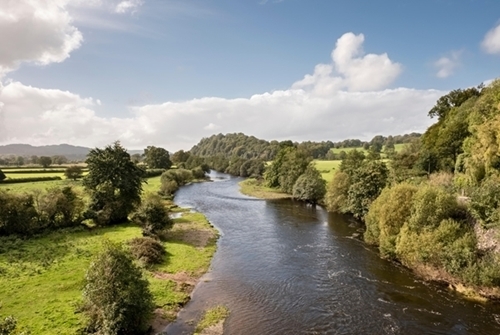
The Welsh Government held their biennial Taste Wales event on 25-26 October, designed to promote the food and drink producers in Wales to a wider, even global, audience.
Listening to the Farming Today podcast about it on 26th October showed that environmental sustainability was a key element in a buyer’s decision – and it was clear that many of the producers were taking this seriously.
But what about Welsh Government? Clearly, the commitment to running the event is a welcome support to the farming industry. However, Welsh Government’s commitment to the environment is less clear.
The recent statement on nutrient management acknowledged that “controls to mitigate potential environmental risks... [are] consistent with the good reputation Welsh farming enjoys around the world for its high environmental and animal welfare standards.”
A Move Toward Self-Reporting
This statement confirmed that after consultation on proposals to introduce a licensing system for livestock manure applications over 170kg of nitrogen (N) per hectare per year (to a maximum of 250kg N) announced a year ago, the Government is going to eschew such an approach in favor of self-reporting.
While we would have had no confidence in a licensing system, there is a very real need to address the lamentable condition of many of the Welsh rivers and streams.
Water Quality Concerns
The recent Water Quality in Wales research briefing (August 2023) identified that 44% of rivers in Wales in 2021 were classified as good according to the EU Water Framework Directive ecological classification; none were ‘high’ and about 10% were in poor or bad condition.
What the GWCT would like to see is an absolute limit of 170 kg/ha total N application with any exceedances of that limit only permitted where there is demonstrable crop demand and appropriate mitigations measures in place.
The historically ‘cheap’ and wide availability of N (both organic and inorganic) has meant that many farmers have become poor at optimizing it as an input. Such a limit would ensure better management of N use and that would not only aid water quality but also contribute towards reducing carbon emissions and, given today’s costs, also improve margins.
Positive Steps and Challenges
That said in the same Farming Today podcast that I referred to earlier it was reassuring that Lesley Griffiths MS, Minister for Rural Affairs, confirmed that up to £20m would be made available for slurry storage grants. There are also options within agri-environment schemes to address run-off from fields but there is not enough money to provide proper advisory services to farmers to ensure that the right action is being taken in the right place. In addition, a problem not unique to Wales, is the reduced resources for monitoring and enforcement.
There are certain buzz words driving policy at the moment – waste, net zero, trees, sustainability, public money for public goods – which are trotted out to support different decisions. But it is noticeable that there is no consistency in application and that there are gaps in key drivers – water quality seems to be one. The Welsh Government’s regression on nutrient management is an example of this as is the fact that Welsh Water continues to breach regulations with only limited prosecutions.
Expanding the View on Water Quality
While there has been a lot of interest and outrage about the impact of storm outflows on water quality, there has been no parallel consideration of the other impacts on water quality and, as a consequence, the conservation of the aquatic environment. In addition to poor practice in agriculture, consideration also needs to be given to the effects of road run-off and other drains that usually feed straight into rivers/watercourses.
A Call for a Joined-Up Approach
At our recent All-party Parliamentary Group meeting in Westminster, our fisheries team made an impassioned appeal for a more joined-up approach to the conservation of our freshwater and marine environments. They called for a risk assessment that would identify pollution pathways and thence allow for the targeted application of mitigation measures.
But above all they called for enforcement agencies to have the necessary resources to undertake appropriate monitoring (farm checks for example) and apply the polluter pays principle where it is clearly identified. This is a fundamental step in reversing the current view that water is cheap – it is not!